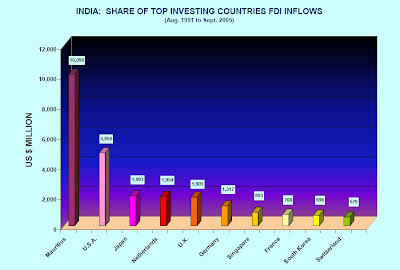
The Government of India has introduced a separate visa regime -- called `P' (Project) Visa -- within the employment visa regime for foreign nationals coming to India for execution of projects in the power and steel sectors. Initially the project Visa will cover only Power & Steel Sectors.
Project Specific Visa:
(i) Visa would be project Specific. A specific endorsement of Visa sticker would indicate the name & location of project.
(ii) The Project Visa would be issued only for skilled/highly skilled persons.
(iii) Only those the foreign nationals employed in the power and steel sector shall be allowed to take advantage of this Visa.
Multiple Entry facility:
(i) The guidelines for `P' Visa clearly say that its validity will initially be for the duration of the project/contract with multiple-entry facility. "It, however, cannot exceed one year.
Period of ‘P’ Visa:
(i) The period of Visa would be determined on case to case basis.
(ii) The period of visa would be initially for a period of one year or for the actual duration of the project / contract, whichever is less.
(iii) P Visa can be extended only with the prior approval of MHA.
Required documents and information:
(i) The Project visa would be issued based on submission of the relevant documents clearly establishing that the project/contract has been assigned to the particular foreign company by the Indian company/organization concerned.
(ii) A separate application form for Project Visa has been devised. The same may be obtained from the website of Ministry of Corporate affairs or alternatively our offices may be contacted in this regard.
Time:
(i) Project Visa will be issued only after approval from concerned authorities in India, the processing of which may take 45-50 days
Conditions for grant of ‘P’ Visa:
(i) A Project Visa holder cannot engage in another project either of the same company or of a different company and his or her work will be restricted to the location of the project.
(ii) In no circumstances would the person be allowed to be engaged in another project either of the same company or of a different company.
(iii) A person coming on Project Visa will not be allowed to take up employment in the same Indian company for a period of two years from the date of commissioning of the project.
(iv) The foreigner coming on Project Visa will have to register himself/herself with the FRRO/FRO concerned within 14 days of arrival if the validity of visa is for more than 180 days. If the validity of visa is for a period of 180 days or less, registration would not be required.
(v) The Indian Company engaging the foreign national for executing the project / contract would be responsible for the conduct of the foreign national during his/her stay in India and also for the departure of such foreign national upon expiry of visa.

























